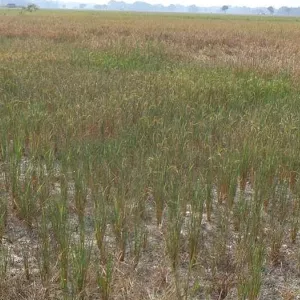Increasing prosperity of small and marginal farmers calls for strong collaboration between IRRI, ICAR, and national research partners
A strong collaboration between the International Rice Research Institute (IRRI) and its national agricultural research and extension system (NARES) partners is crucial in increasing the prosperity of small and marginal farmers through the proliferation of rice science, according to Sudhanshu Singh, director of IRRI-South Asia Regional Centre (IRRI-SARC). Dr. Singh added that IRRI-SARC continues to extend all-around support to collaborating

Increasing prosperity of small and marginal farmers calls for strong collaboration between IRRI, ICAR, and national research partners
A strong collaboration between the International Rice Research Institute (IRRI) and its national agricultural research and extension system (NARES) partners is crucial in increasing the prosperity of small and marginal farmers through the proliferation of rice science, according to Sudhanshu Singh, director of IRRI-South Asia Regional Centre (IRRI-SARC). Dr. Singh added that IRRI-SARC continues to extend all-around support to collaborating institutes and universities.
Dr. Singh made the statement on June 19, 2021 during the online Review and Planning Workshop of the project Climate-Smart Management Practices and the Climate-smart Management for the Stress-prone Environment sub-project under the Indian Council of Agricultural Research (ICAR)-IRRI Collaborative Project 2.1.
Around 30 participants from various ICAR institutes, and state agricultural and central universities actively took part in the virtual workshop. Collaborating NARES partners presented their respective research accomplishments, current research programs, and future work plans.
Considerable research progress has been made in developing cost-effective management approaches for tapping the genetic potentials of stress-tolerant (flood, drought, and salinity) rice varieties under rainfed low and upland environments. The major researchable issues discussed at the workshop focused on the development of best agronomic practices in rice-based cropping systems for system optimization, risk-aversion, and sustainable intensification without jeopardizing the environment.
Dr. Singh suggested prioritizing the identification, evaluation, and adaptation of the technologies with validation at the farmers’ fields under stress-prone environments.
ICAR-National Rice Research Institute (NRRI) Director Dipankar Maiti called for the development, deployment, and dissemination of low-cost, climate-smart, and site-specific strategies for improving productivity, profitability, and resilience of rice-based production systems to help achieve the UN Sustainable Development Goals.
Amresh Nayak, Crop Production Division head at ICAR-NRRI, highlighted the emerging need for consolidated teamwork in a multidisciplinary perspective. Consolidated teamwork is necessary to develop and fine-tune different climate-smart management practices…

